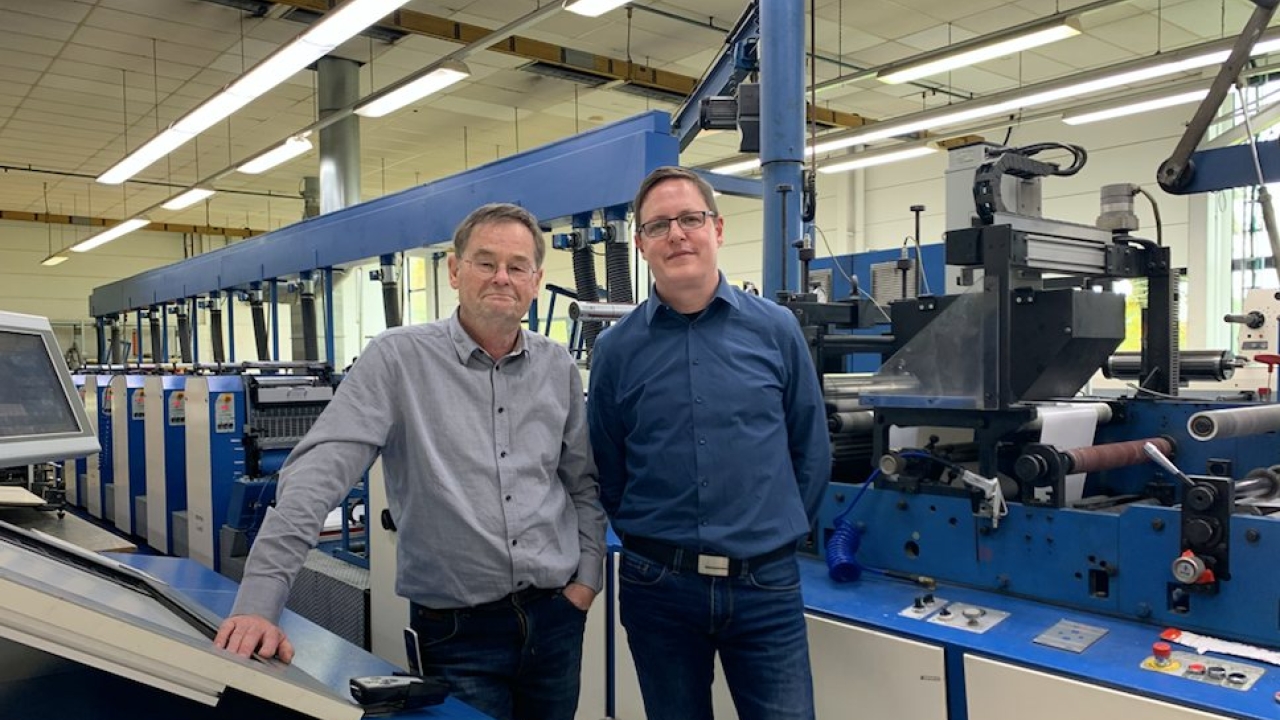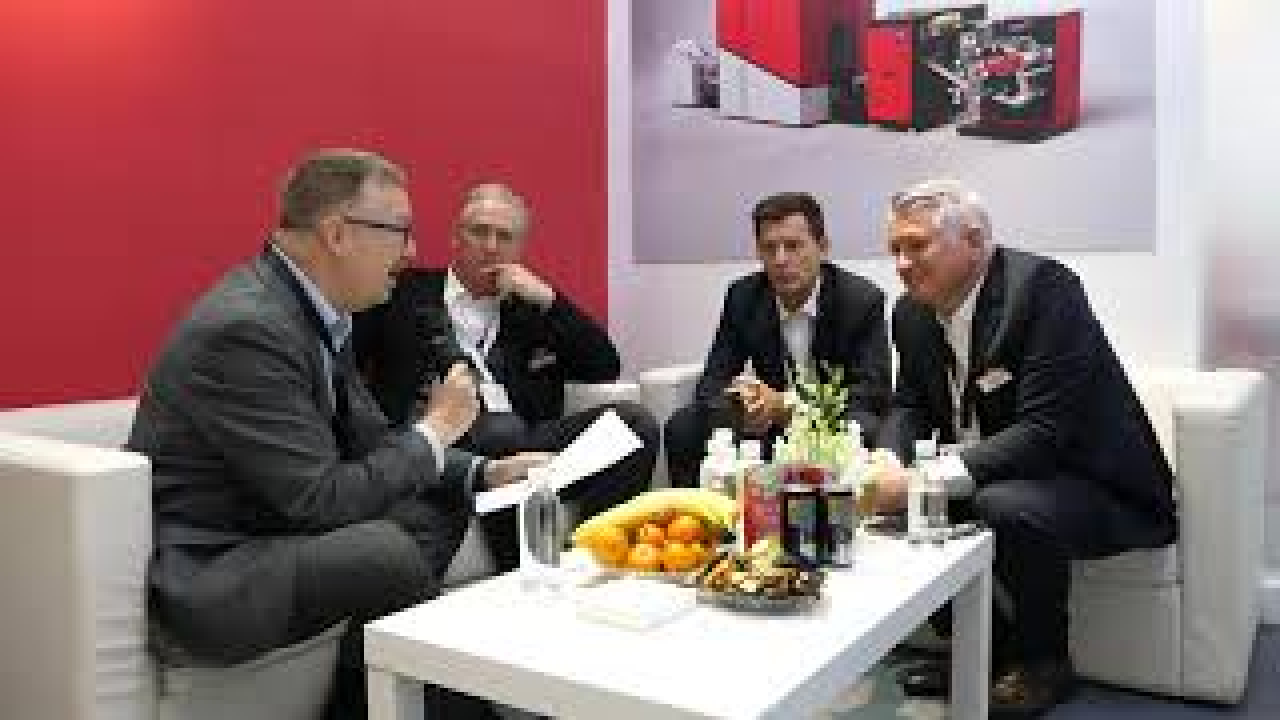Happiness breeds success at Ritter Haftetiketten

When technical director Wolfgang Ober arrives, smiling, he confides: ‘I shouldn’t be here, to be honest. I have passed my retirement age and should be at home relaxing, but I love this place and this industry so much that I simply cannot stay home. I must come here each day, see everyone and make sure product lines are running as they should be. This makes me a happy and relaxed person.’
The company was established in 1971 by Rolf Ritter, who produced the first labels in a small factory in Bielefeld. This family run business quickly grew and expanded into a bigger site in Enger, a few miles away from Bielefeld, but still in the heart of Germany.
Today, Ritter prints adhesive labels using flexo, offset, screen, digital offset and combination printing. The Enger headquarters is now also home to the company’s in-house graphic design and development departments.
Around 65 percent of Ritter’s customers come from the food and beverage industry. The company also provides labels for cosmetics, medicines and pet food. It produces the full range of labels from standard one-pagers, listing ingredients and nutritional information, through to special multi-purpose labels for promotional purposes and 32-page booklets. Ritter also focuses on applications for innovative materials, inks and adhesives.
The company registers an annual turnover of around 19m EUR and employs more than 140 people. Its success is highly dependent on human talent and a strong focus on its regional market, working with companies within the 200km radius from the headquarters in Enger.
Values
‘Quality is the most important thing for our existence,’ says Ober. ‘It is the basis for the long-term trust of our customers in our efficiency and the continuous commitment to our company. Quality also shapes our relationships with our customers and our partners, suppliers of goods and services, as well as our employees. Quality does not only extend to our products, but also to the entire service in all areas of the company, from product development to sales. But above all we maintain a human and happy atmosphere in our factory and in business relationships.’
The company’s values are evident in every part of the production process. Ritter Haftetiketten has been working with local businesses right from the beginning to build a strong and reliable supply chain with relationships going back decades.
‘One example is Spilker, a flexible dies and rotary tools manufacturer, located in Leopoldshöhe, just a short drive from our headquarters,’ explains Ober. ‘We have been working together for over 40 years and to be honest with you I could not imagine us not working together. During the last few decades we have built a strong and trustworthy relationship. I know that if we are ever in trouble and needed urgent help, I can call on them at any time, and they will do all they can. This does not happen often, but it is a great reassurance that if we need help, we will have it as soon as possible. That’s why local relationships are so important for us.’
Strong relationships are also extended to the company employees. Thirty-two percent of them have been working for the company for more than 25 years, proving that the care and honesty is highly valued by the workforce. Ritter also invests heavily in new talent, offering apprenticeship programs to young professionals from the region, which often lead to full-time employment.
Building on its core values, two years ago the company added a further production site in Gehrde in Westphalia, which nearly doubled its production capabilities.
‘This not only brings more production lines and more Ritter quality: it opens new doors to more local businesses and local communities,’ concludes Ober. ‘I do not see more labels produced, I see more meaningful relationships and the extension of Ritter love. We turn our customers’ ideas into reality, but we would never be able to do so without happy people on our production lines.’
Stay up to date
Subscribe to the free Label News newsletter and receive the latest content every week. We'll never share your email address.

